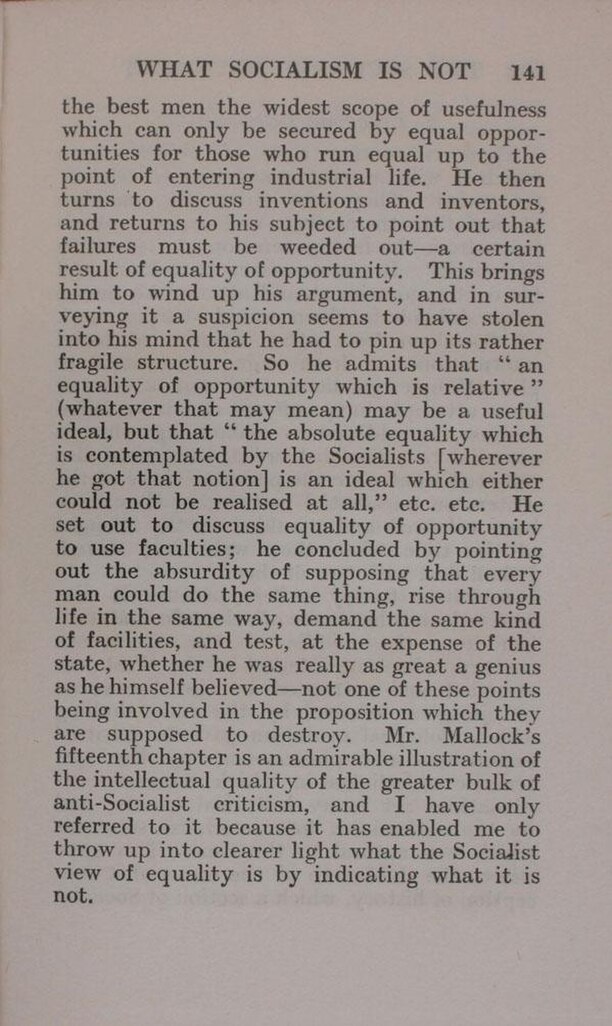the best men the widest scope of usefulness which can only be secured by equal opportunities for those who run equal up to the point of entering industrial life. He then turns to discuss inventions and inventors, and returns to his subject to point out that failures must be weeded out—a certain result of equality of opportunity. This brings him to wind up his argument, and in surveying it a suspicion seems to have stolen into his mind that he had to pin up its rather fragile structure. So he admits that "an equality of opportunity which is relative" (whatever that may mean) may be a useful ideal, but that "the absolute equality which is contemplated by the Socialists [wherever he got that notion] is an ideal which either could not be realised at all," etc. etc. He set out to discuss equality of opportunity to use faculties; he concluded by pointing out the absurdity of supposing that every man could do the same thing, rise through life in the same way, demand the same kind of facilities, and test, at the expense of the state, whether he was really as great a genius as he himself believed—not one of these points being involved in the proposition which they are supposed to destroy. Mr. Mallock's fifteenth chapter is an admirable illustration of the intellectual quality of the greater bulk of anti-Socialist criticism, and I have only referred to it because it has enabled me to throw up into clearer light what the Socialist view of equality is by indicating what it is not.
Page:James Ramsay MacDonald - The Socialist Movement.pdf/145
WHAT SOCIALISM IS NOT
141
